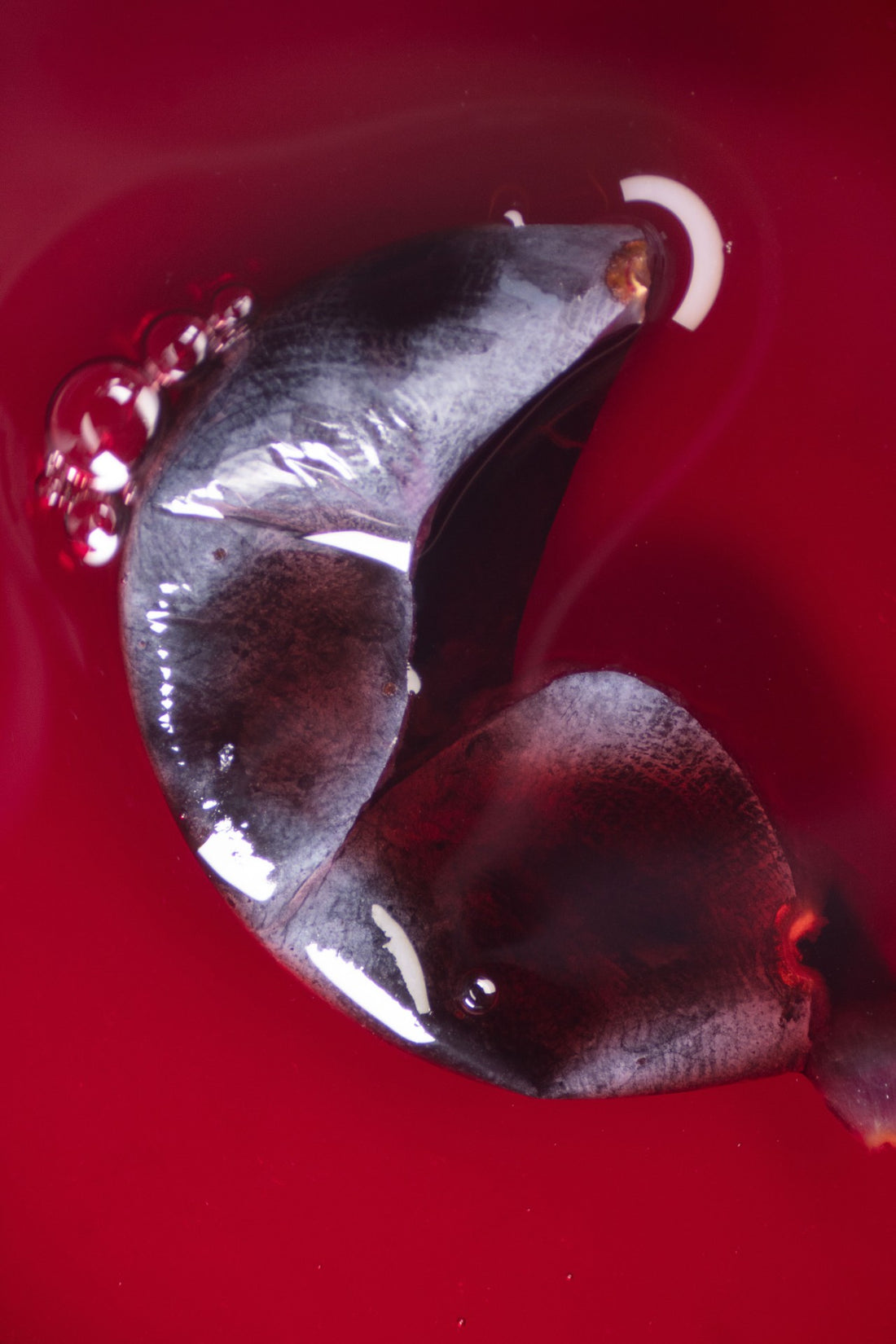
The Resveratrol Wine Connection: What You Need To Know
McKenzie HaganFrom celebrating some of life's most special occasions to simply unwinding after a long day of work, there's no denying the pleasure of sipping on a glass of wine. But it might be more than your tastebuds and mood that are enhanced from your favorite vino thanks to the resveratrol wine connection.
Chances are, you've heard something about how drinking a glass of red wine can be good for your health, and that's all because of resveratrol. This highly hyped compound has been touted for its ability to support everything from heart health to weight loss. But is resveratrol in wine really worthy of all the buzz?
Join us as we explain what resveratrol is, the potential health benefits it offers, how much resveratrol is typically found in wine, and whether drinking wine could actually be good for your overall wellness.
Understanding Resveratrol and Its Presence in Wine
Resveratrol is a naturally occurring polyphenol, which is a type of nutrient-rich compound found in certain plant-based foods. Polyphenols are packed with antioxidants that have anti-inflammatory properties to help protect cells from damage by free radicals — potentially harmful molecules that can lead to oxidative stress, which is linked to aging and a variety of diseases.
Some of the most well-known dietary sources of polyphenols include grapes, blueberries, blackberries, raspberries, cranberries, plums, apples, dark chocolate, tea, and even peanuts, as well as products that are made from these foods, including grape juice and wine.
While resveratrol is found naturally in some foods and drinks, it's also available in supplement form, often as an extract from the Japanese knotweed plant (scientific name Polygonum cuspidatum). This plant has high levels of trans-resveratrol, which is the active part of the compound that's most useful to the body (meaning it has better bioavailability).
Exploring 8 Potential Resveratrol Benefits

While resveratrol is undoubtedly a potent antioxidant, it's not entirely clear whether drinking red wine will actually boost your health.
Resveratrol in wine, specifically red wine, often receives high praise for its potential health benefits, especially considering its antioxidant properties and the ensuing impact on our bodies. However, it's critical to remember that while consuming red wine may offer some benefits due to its resveratrol content, the alcohol in wine can also pose health risks if not consumed in moderation.
Most studies have been done on animals or test tubes, and much of the research done with humans so far has focused on resveratrol supplementation that contains higher doses than what you get naturally through food or wine. (We'll share more about this in the next section — let's just say, it will boggle your mind.)
Longer-term human clinical trials are necessary to offer more conclusive details on the beneficial effects of resveratrol. But in the meantime, here are some promising preliminary results that are backed by science:
- May reduce the risk of heart disease: Thanks to the antioxidant activity of resveratrol in wine, it may lead to a lower risk of coronary heart disease, which is the leading cause of death in the United States.
- Can reduce cholesterol: Triglycerides are lipids (fats) in the blood that can raise the risk of heart disease. In animal studies, including one test conducted on mice, resveratrol increased HDL cholesterol (aka "good cholesterol") and decreased LDL oxidation (aka "bad cholesterol").
- May lower blood pressure: In a recent meta-analysis of six different human clinical studies, resveratrol (at higher dosage levels) was shown to reduce blood pressure and help those with hypertension.
- Linked to weight loss: In a report published in 2020, data from multiple randomized controlled trials (aka human studies) found that resveratrol intake significantly reduced weight and fat mass, including for those with obesity.
- Can protect the brain: Because of its antioxidant and anti-inflammatory qualities, some studies suggest that resveratrol may positively impact brain health. It has been linked to better blood flow, protection of brain cells, and improved cognitive function, although there's insufficient evidence to confirm it combats Alzheimer's disease.
- May help manage diabetes: There's some research that shows resveratrol can help control blood glucose levels (blood sugar levels) and improve insulin sensitivity for those with Type 2 diabetes, a chronic condition that affects millions of Americans.
- Could reduce hay fever: Some clinical studies have found that using resveratrol in nasal spray can help alleviate sinus symptoms in adults.
- Shows some anti-cancer properties: While much more research is needed in regards to resveratrol's cancer-fighting properties, some evidence demonstrates it may have some protective effects and prevent certain cancer cells from replicating.
Good to know: Resveratrol is generally regarded as safe, but there are rare incidences of side effects from taking high doses of resveratrol supplements — particularly for those who take blood thinners (like warfarin) or have other medical conditions and risk factors. As always, get medical advice from your doctor or other healthcare professional before taking any dietary supplements to discuss what's right for you.
Deciphering the Resveratrol Content in Wine

There is no set resveratrol wine amount as it depends on a variety of factors, including the type of grape and fermentation technique used in the winemaking process.
For one thing, resveratrol is concentrated mostly in red grape skins (and also the grape seeds). Unlike white wine grapes that are fully crushed to extract the skins and seeds, red wine and rosé wines are fermented with their skins on. This prolonged contact with the skins results in a greater buildup of resveratrol content.
Furthermore, dark red and purple grapes have a higher concentration of resveratrol than other grape varieties. As such, you'll find that Malbec, Syrah, Pinot Noir, and Cabernet Sauvignon tend to have the highest resveratrol levels.
That said, resveratrol wine amounts are not as high as you might think. Studies show that resveratrol concentrations in wine can range from negligible to around 1.979 milligrams per liter (for Pinot Noir from France). Research also shows that you'd likely need to consume at least 1 gram of resveratrol (1,000 milligrams) daily to experience any of the significant therapeutic benefits it offers.
To put these figures into perspective, that means you'd have to consume more than 505 liters — a whopping 133 gallons! — of Pinot per day to get the health benefits. Yes, you read that right. (We'll wait while you pick up your jaw from the floor.)
Of course, nobody would ever recommend such an insane consumption of red wine, but it just goes to show that the health benefits of resveratrol have been a bit overblown when measured by realistic standards.
The bottom line is that moderate intake of red wine can support cardiovascular health in healthy people. Most health experts agree that two drinks a day for men and one drink a day for women is a moderate amount. A standard glass of wine in the U.S. is a 5-ounce pour at about 12% alcohol (ABV). Be sure to check out our guide on the alcohol content of wine to make sure you're staying on track.
Good to know: Pay attention to where your wine comes from and how it's made. (Ever notice how there's no nutritional label on wine bottles?) There are many ingredients that winemakers don't have to disclose on the bottle, including chemical preservatives, sweeteners, and other artificial additives. Usual Wines are produced in small batches from sustainably farmed grapes with no chemical ingredients and no sugar added.
Importantly, wines made using traditional methods typically contain higher levels of resveratrol compared to those produced using more industrial processes. This is because the process of making resveratrol wine—such as fermenting the grape skins—allows for a higher concentration of resveratrol to be retained. This is another reason why red wines generally have higher levels of resveratrol compared to white wines, as red wines are fermented with their skins on.
Reaping the Benefits of Resveratrol Wine
As with most things in life, moderation is key. Just because there's a resveratrol wine connection doesn't mean you're going to guzzle down gallons of vino. On the contrary, you can continue enjoying your delightful glass of red wine in good health.
While we're just at the tip of the vine when it comes to uncovering the potential health benefits of resveratrol, it's exciting to think that your favorite red wine comes with more than just a beautiful bouquet, luscious mouthfeel, and delicious flavor. It might actually be good for your heart. Wine is indeed a wonderful thing and you don't need any hype about that.








